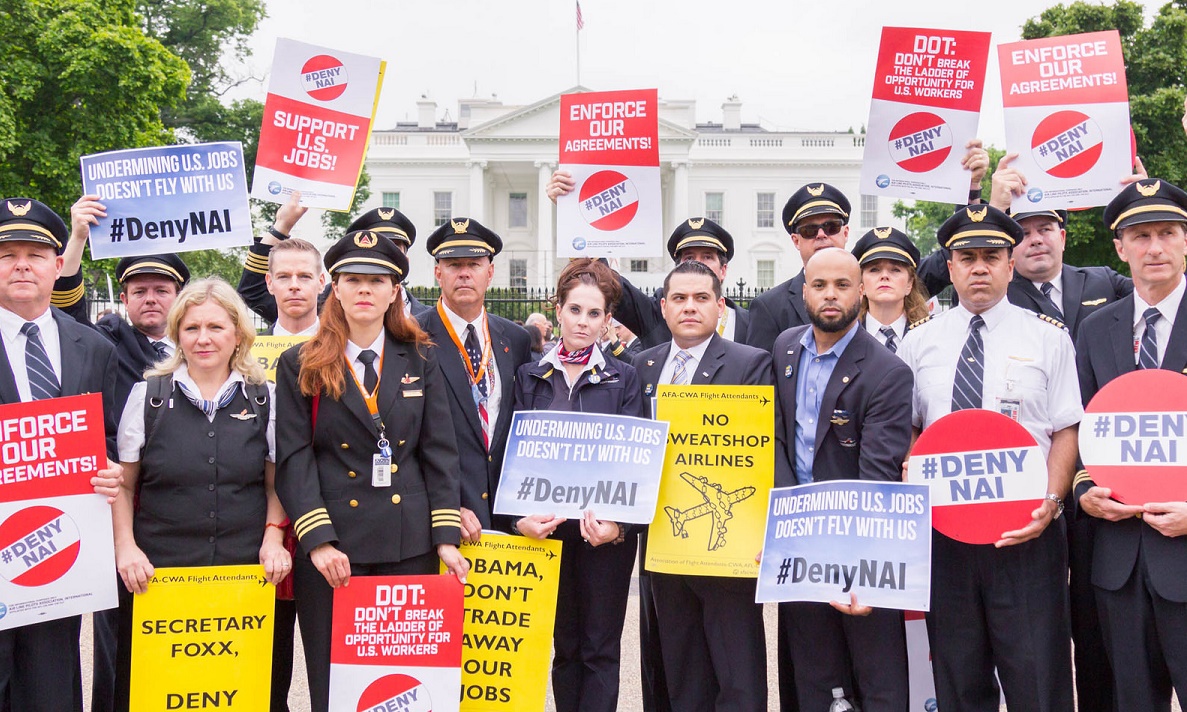This week, ALPA submitted two filings with other unions to the U.S. Department of Transportation (DOT) that reveal still more evidence as to why the U.S. government should uphold its air service agreements and defend a fair marketplace by denying Norwegian Air International’s (NAI) and Norwegian Air UK’s (NAUK) applications to fly to and from the United States.
NAI’s business plan is designed to dodge Norwegian labor and regulatory laws to gain an enormous competitive advantage over U.S. airlines, which are required to do business under one set of U.S. laws and regulations. This scheme is completely at odds with the U.S.–EU Air Transport Agreement (ATA), which contains an article expressly designed to deter efforts such as NAI’s that undermine labor standards.
Unlike Irish-flagged NAI, NAUK is a UK airline. The employment structure for NAUK pilots and flight attendants is unclear, as is its potential effect on U.S. jobs and the international airline industry. For this reason, the DOT must request complete information about its employment plans and allow all parties involved an adequate opportunity to evaluate the potential effects of the NAUK’s plan.
In addition, once the Brexit process is completed, the UK will not be a Member State of the EU. It will then no longer be a party to the ATA. Given that NAUK is wholly owned by Norwegian Air Shuttle, a citizen of Norway, it might not qualify for authorization to serve the United States under whatever new regulatory regime governs U.S.-UK aviation.
On June 27, former Deputy Secretary of Transportation John Porcari conclusively affirmed that the ATA labor provision applies to both NAI and NAUK’s foreign air carrier permit applications in an article titled “Setting the record straight on Norwegian Air and the US-EU Open Skies Agreement.”
Mr. Porcari, the senior DOT official who oversaw the U.S.-EU negotiations, states in the article, “[A] decision whether or not to grant operating authority based on compliance with Article 17 is at the heart of implementation of the ATA.”
ALPA opposes NAI’s foreign air carrier permit application because its business plan runs contrary to the ATA. Since NAUK has supplied inadequate information about its employment plans and significant uncertainty exists about post-Brexit rules for UK airlines that seek to serve the United States, ALPA opposes NAUK’s application for a foreign air carrier exemption, which would allow it to fly while DOT considers its permit application.
U.S. trade agreements matter. The U.S. government owes it to U.S. aviation workers to uphold them.


